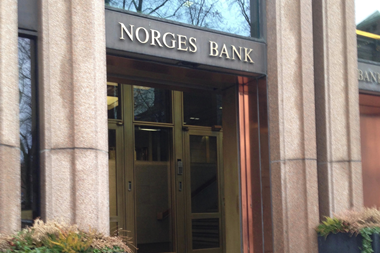The manager of Norway’s NOK10.3tn (€961bn) sovereign wealth fund has laid bare its thinking on shareholder proposals about sustainability, saying some of the ideas put to the vote at companies’ general meetings are either not relevant enough – or too controlling.
Publishing a paper explaining its approach, Norges Bank Investment Management (NBIM) said motions on sustainability often addressed central economic, environmental and societal challenges.
Over time, they have been instrumental in spurring firms to adopt more responsible business practices, it said.
But Carine Smith Ihenacho, chief corporate governance officer at NBIM, said: “However, some shareholder proposals focus on tangential issues or attempt to micro-manage company boards.”
Investors needed a robust method to differentiate the quality of proposals when voting for or against them, she said.
“We recommend evaluating proposals according to materiality, prescriptiveness and a careful consideration of company context,” NBIM said.
Smith Ihenacho said: “We have to make decisions on issues put forward in shareholder proposals that are often wide-ranging and have complex root causes.”
For this reason, NBIM, which manages the Government Pension Fund Global (GPFG), needed to make considered, analytically-based voting decisions, she said.
The Oslo-headquartered asset manager said in many markets there were more and more proposals from shareholders on the environmental and social aspects of corporate activities, which could raise a wide range of issues from climate scenario analysis or supply chain due diligence to recyclable packaging.
This year alone, NBIM said it had so far voted on 187 shareholder proposals on sustainability.
In its “asset manager perspective” paper published today, NBIM urged those filing proposals to consider carefully which topics they raised and the context of the individual company, and that the ideas allowed management enough flexibility to implement them into strategy and operations.
Even though it was expensive to analyse specific proposals in detail, NBIM said high-quality proposals had to be sifted from low-quality motions to protect and enhance shareholder value – by backing what was in the company’s best long-term interests and voting against what was not.
“Failing to collect and analyse information before voting on a shareholder proposal can mean ignoring a material risk or issue and may have negative value implications,” the manager said.
Last month, NBIM announced a move to increase openness about how it votes, pledging to publish its rationale for these decisions a day after voting against an investee company’s board.








